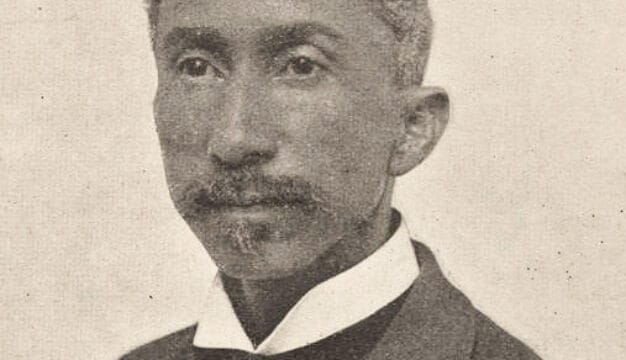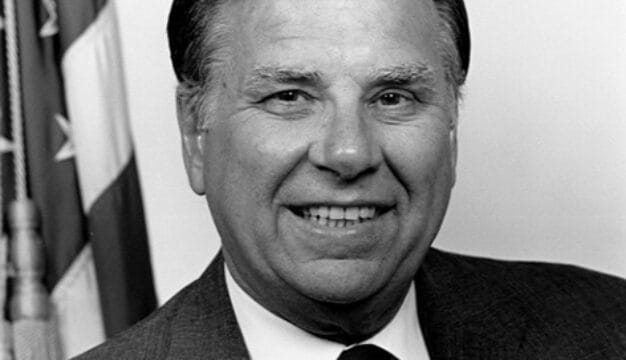John Henry Caldwell
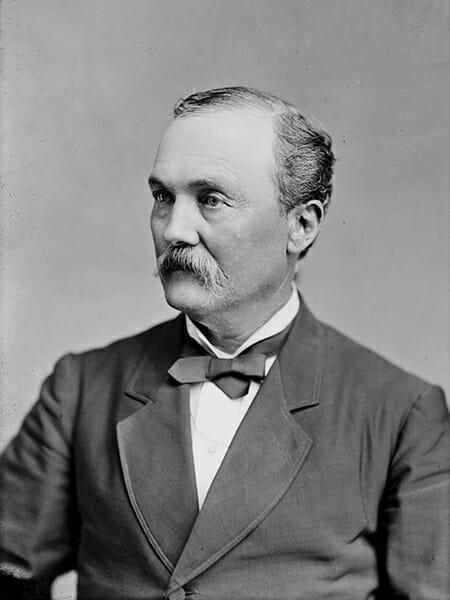 John Henry Caldwell
John Henry Caldwell (1826-1902) served in the U.S. House of Representatives from 1873 to 1877 representing Alabama‘s Fifth Congressional District. Caldwell was a teacher and lawyer and served in the Alabama House prior to the Civil War; during the conflict he served as a lieutenant colonel in the Confederate States Army. After his terms in Congress, he returned to private life, practicing law in Jacksonville, Calhoun County.
John Henry Caldwell
John Henry Caldwell (1826-1902) served in the U.S. House of Representatives from 1873 to 1877 representing Alabama‘s Fifth Congressional District. Caldwell was a teacher and lawyer and served in the Alabama House prior to the Civil War; during the conflict he served as a lieutenant colonel in the Confederate States Army. After his terms in Congress, he returned to private life, practicing law in Jacksonville, Calhoun County.
Caldwell was born in Huntsville, Madison County, on April 4, 1826, to John and Emily Caldwell; he had three siblings. Caldwell was educated in the common schools of the Huntsville area and pursued higher education at Bacon College in Harrodsburg, Kentucky. Caldwell began teaching at just 17 years old and worked at a number of institutions. He taught in Limestone County for four years. He was married October 31, 1846, to Mary Darthula Greer, with whom he would have four children. After moving to Jacksonville in 1848, Caldwell served as principal of the Jacksonville Female Academy (present-day Jacksonville State University) until 1852. He then served as principal of the Jacksonville Male Academy from 1853-57. In addition to his work in education, he also was involved in journalism, editing the Jacksonville Republican from 1851-52 and the Sunny South in 1855.
As his career in education came to an end, Caldwell took an interest in politics and was elected to the Alabama House of Representatives in 1857 and 1858. During this time, he also began pursuing a law degree and was admitted to the Alabama State Bar in 1859. He then operated a law practice in Jacksonville until the outbreak of the Civil War.
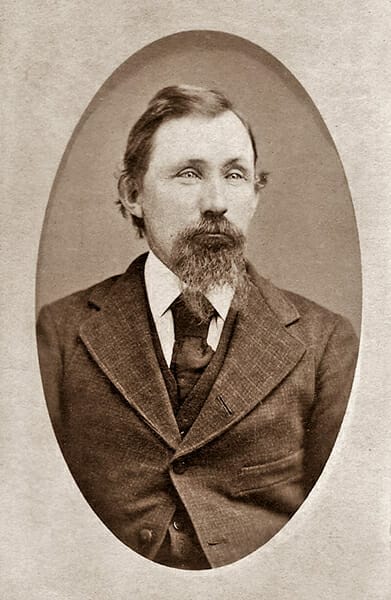 John Horace Forney
Caldwell enlisted in the Confederate Army on June 4, 1861. He assisted in organizing Company A of the Tenth Alabama Infantry Regiment that was under the command of John Horace Forney, older brother of future U.S. Representative William Forney. The company, known as the Ashville Guards, was made up predominantly of men from St. Clair and Calhoun Counties. Taking part in early battles in Virginia, several officers, including the Forneys, were wounded (William was captured) and others killed. Caldwell thus rose to the rank of major and ultimately lieutenant colonel, on June 27, 1862, serving in the Army of Virginia. At the June 30, 1862, Battle of Glendale, also known as the Battle of Frazier’s Farm, in Henrico County, Virginia, Caldwell was wounded by a piece of shrapnel striking his forehead. The engagement was part of the larger Seven Days Campaign in Virginia during which Gen. Robert E. Lee diverted Gen. George B. McClellan away from the Confederate capitol in Richmond. This particular battle was inconclusive though, with both sides suffering high losses. The Tenth Alabama was “almost totally annihilated,” according to a U.S. Army officer’s account and command devolved to Caldwell after all those outranking him were either killed or incapacitated while advancing on well-positioned federal forces. (The colors were captured by the 9th Pennsylvania Reserves Regiment but survived the war and were returned to the Alabama Department of Archives and History in 2001.) Caldwell resigned from the military in June 1863, roughly a year after his injury, and was elected solicitor for the Tenth Judicial Circuit of Alabama but was removed from office after the fall of the Confederacy. Undeterred, Caldwell ran for his former office in the next round of elections and won. Two years later, in 1867, he was again removed from office as a result of disobeying orders from the federal military forces overseeing the South’s reconstruction.
John Horace Forney
Caldwell enlisted in the Confederate Army on June 4, 1861. He assisted in organizing Company A of the Tenth Alabama Infantry Regiment that was under the command of John Horace Forney, older brother of future U.S. Representative William Forney. The company, known as the Ashville Guards, was made up predominantly of men from St. Clair and Calhoun Counties. Taking part in early battles in Virginia, several officers, including the Forneys, were wounded (William was captured) and others killed. Caldwell thus rose to the rank of major and ultimately lieutenant colonel, on June 27, 1862, serving in the Army of Virginia. At the June 30, 1862, Battle of Glendale, also known as the Battle of Frazier’s Farm, in Henrico County, Virginia, Caldwell was wounded by a piece of shrapnel striking his forehead. The engagement was part of the larger Seven Days Campaign in Virginia during which Gen. Robert E. Lee diverted Gen. George B. McClellan away from the Confederate capitol in Richmond. This particular battle was inconclusive though, with both sides suffering high losses. The Tenth Alabama was “almost totally annihilated,” according to a U.S. Army officer’s account and command devolved to Caldwell after all those outranking him were either killed or incapacitated while advancing on well-positioned federal forces. (The colors were captured by the 9th Pennsylvania Reserves Regiment but survived the war and were returned to the Alabama Department of Archives and History in 2001.) Caldwell resigned from the military in June 1863, roughly a year after his injury, and was elected solicitor for the Tenth Judicial Circuit of Alabama but was removed from office after the fall of the Confederacy. Undeterred, Caldwell ran for his former office in the next round of elections and won. Two years later, in 1867, he was again removed from office as a result of disobeying orders from the federal military forces overseeing the South’s reconstruction.
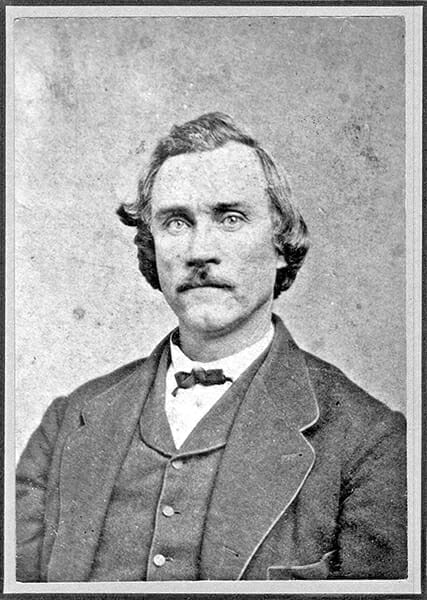 James L. Sheffield
Caldwell resumed his political career once again, seeking the Democratic nomination for Alabama’s Fifth Congressional District in 1872. During this era, the Democratic nominee was decided at a convention rather than through a primary, and Caldwell’s main rival was James L. Sheffield. He also was a former Confederate officer and something of a rabble rouser in Alabama politics during Reconstruction. The more populist Sheffield argued that the state Democratic Party was dominated by elites and unresponsive to the needs of the common man. At the convention, Sheffield enjoyed a plurality of delegate support, but after 50 rounds of ballots no one secured a clear majority. Eventually Sheffield withdrew, allowing Caldwell to emerge the victor. He won the open seat that had been held by Democrat Peter Myndert Dox, a transplant from New York who settled in Madison County to farm in the 1850s. Two years later, Caldwell would face Sheffield again at both the Democratic Convention and general election. Sheffield again entered the convention with strong support, but Caldwell retained the nomination when too few Sheffield delegates arrived on time and their seats were filled by Caldwell supporters. Sheffield subsequently accused Caldwell of rigging the vote and publicly aired his grievances. After his demands for a second convention were largely ignored, he threw his hat into the ring as an independent. Sheffield had previously denounced Republicans, Reconstruction, and the 14th and 15th Amendments, which granted citizenship and voting rights to African Americans, respectively. But, his independent status likely allowed him to be seen by Republicans and African Americans as the de facto Republican nominee while appealing to disgruntled Democrats. Although the race was one of the most competitive in the state, Caldwell proved victorious with more than 59.1 percent of the vote.
James L. Sheffield
Caldwell resumed his political career once again, seeking the Democratic nomination for Alabama’s Fifth Congressional District in 1872. During this era, the Democratic nominee was decided at a convention rather than through a primary, and Caldwell’s main rival was James L. Sheffield. He also was a former Confederate officer and something of a rabble rouser in Alabama politics during Reconstruction. The more populist Sheffield argued that the state Democratic Party was dominated by elites and unresponsive to the needs of the common man. At the convention, Sheffield enjoyed a plurality of delegate support, but after 50 rounds of ballots no one secured a clear majority. Eventually Sheffield withdrew, allowing Caldwell to emerge the victor. He won the open seat that had been held by Democrat Peter Myndert Dox, a transplant from New York who settled in Madison County to farm in the 1850s. Two years later, Caldwell would face Sheffield again at both the Democratic Convention and general election. Sheffield again entered the convention with strong support, but Caldwell retained the nomination when too few Sheffield delegates arrived on time and their seats were filled by Caldwell supporters. Sheffield subsequently accused Caldwell of rigging the vote and publicly aired his grievances. After his demands for a second convention were largely ignored, he threw his hat into the ring as an independent. Sheffield had previously denounced Republicans, Reconstruction, and the 14th and 15th Amendments, which granted citizenship and voting rights to African Americans, respectively. But, his independent status likely allowed him to be seen by Republicans and African Americans as the de facto Republican nominee while appealing to disgruntled Democrats. Although the race was one of the most competitive in the state, Caldwell proved victorious with more than 59.1 percent of the vote.
In Congress, Caldwell served as a member of the Committee on Agriculture. His voting record also put him among the Democratic caucuses’ most liberal members, though he opposed civil rights reform, such as the 1875 Civil Rights Act, like virtually every southern Democrat. After just two terms, he decided to retire from politics and focus on his law practice alongside G. C. Ellis a former state representative who had practiced law in the Jacksonville area for decades. Caldwell died on September 4, 1902, in Jacksonville and was buried in Jacksonville City Cemetery. His son John Madison Caldwell had been trained in law by his father and went on to become a well-regarded lawyer and minor political figure in his own right, representing Calhoun County in the state legislature.
